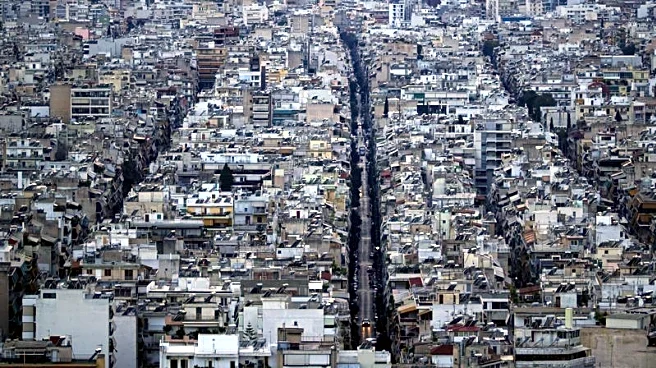Rapid Read • 8 min read
Israel has resumed airdropping food into Gaza as starvation deaths in the besieged enclave increase. The Israeli military announced that seven pallets of flour, sugar, and canned goods were delivered following a meeting led by Prime Minister Benjamin Netanyahu. This action comes as international criticism mounts over Israel's restrictions on aid to Gaza. The Israeli military has also agreed to pause fighting to facilitate food distribution and assist U.N. agencies in their aid efforts. Additionally, Israel will restore electricity to Gaza's only functioning water desalination plant, which had been shut down since March. Aid agencies have criticized the airdrops as insufficient, accusing Israel of attempting to whitewash a policy of deliberate starvation. Despite these efforts, the humanitarian crisis in Gaza remains severe, with a significant lack of food security reported.
AD
The resumption of food airdrops by Israel highlights the dire humanitarian situation in Gaza, where starvation deaths are rising. This development underscores the intense international pressure on Israel to address the crisis. The blockade and restrictions on aid have drawn widespread condemnation, with images of malnourished children circulating globally. The airdrops, while a temporary measure, are unlikely to meet the daily needs of Gaza's population of over 2 million people. The situation has prompted international governments, including Jordan and the UK, to offer assistance in delivering aid. The crisis in Gaza not only affects the immediate humanitarian needs but also has broader implications for regional stability and international relations.
Israel's decision to assist in food distribution could lead to increased overland aid delivery if implemented effectively. However, the airdrops are seen as a temporary solution, and there are calls for a more sustainable approach to address the food shortage. The international community, including countries like France and Germany, is considering joining the airdrop missions. The ongoing humanitarian crisis may prompt further diplomatic efforts to lift the blockade and improve aid access. The situation remains fluid, with potential for further international intervention and policy changes.
The crisis in Gaza raises ethical and political questions about the use of blockades and restrictions as a tool of conflict. The humanitarian impact of such measures is significant, affecting vulnerable populations and leading to severe malnutrition and starvation. The situation also highlights the challenges of delivering aid in conflict zones, where logistical and security issues complicate efforts. The international response to the crisis may influence future policies on humanitarian aid and conflict resolution.
AD
More Stories You Might Enjoy














